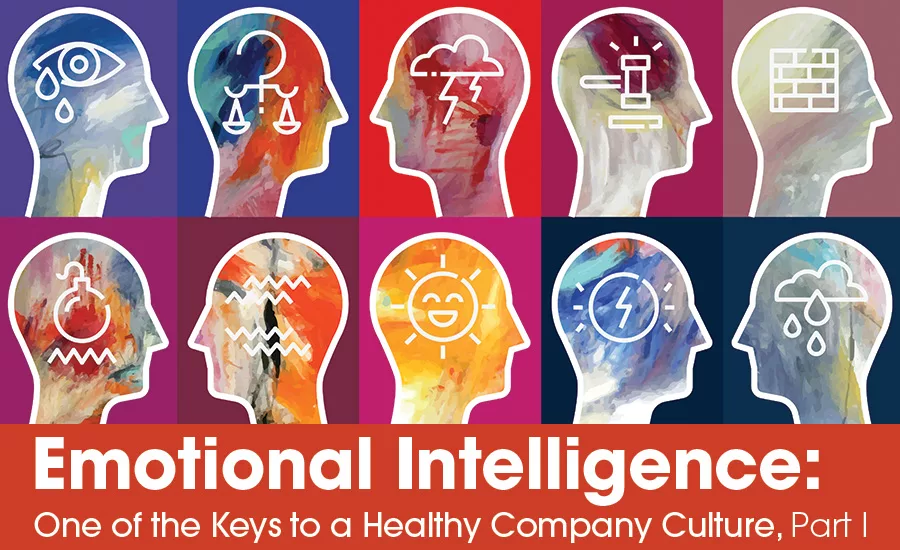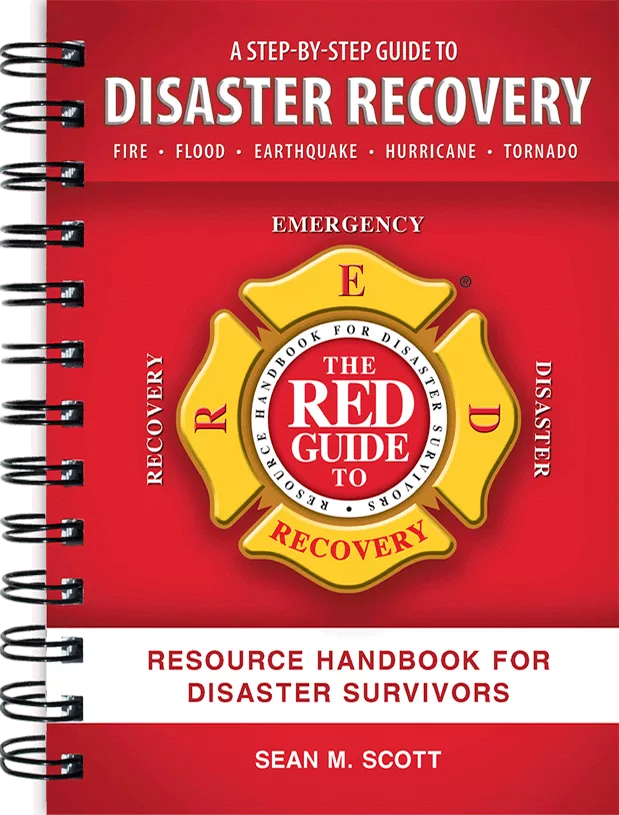Emotional Intelligence: One of the Keys to a Healthy Company Culture, Part I

It isn’t necessarily the smartest people who are the most successful or feel most fulfilled in life. You may know someone who is academically smart yet is socially inept and unsuccessful at work or in their personal relationships. Many believe that focusing on and learning to raise your Emotional Intelligence (EQ) can help you more effectively deal with the stresses and emotions in your life, thereby helping to increase your success and fulfillment.
Emotional intelligence is the ability to understand, use, and manage your own emotions in positive ways to relieve stress, communicate effectively, empathize with others, overcome challenges, and defuse conflict. It can help you build stronger relationships, succeed at school and work, and achieve your career and personal goals by enabling you to connect with your feelings, turn intentions into actions, and make informed decisions about what matters most to you.
Much has been written about the growing importance of emotional intelligence in the workplace, the majority focused on management and leadership positions. The Harvard Business Review recently reported that EQ represents about 90% of the difference between average and star performers at the top tier of executives within an organization.
The Future of Jobs report for 2020, published by the World Economic Forum, shows emotional intelligence (EQ) as number six of the 10 most important skills in the workforce. EQ wasn’t even on the list in 2015.
My goal in this four-part series is to look at emotional intelligence as it applies to the non-management positions in your organization. As teamwork and collaboration are becoming more important to how organizations produce work, make decisions, and improve processes, the ability of all employees to understand EQ concepts and appropriately adapt their behaviors can be critical to a healthy culture and the attraction and retention of top talent.

Let’s begin by reviewing a brief background on the four characteristics that most experts agree are at the core of emotional intelligence.
Self-awareness — Thoroughly understanding yourself and your effect on others. Those who are self-aware know their abilities, play to their strengths, and welcome feedback. They typically have a self-deprecating sense of humor; they admit to failure and do it with a smile.
Self-regulation — Controlling destructive impulses and thinking before acting. This involves fairness and trust when interacting with others and focusing on addressing the reasons for failure instead of placing blame.
Experts describe these first two traits as our “personal competence.” It represents our ability to stay aware of our emotions and manage our behavior and tendencies.
The remaining traits are those that make up our “social competence” – our ability to understand other people’s moods, behaviors, and motives in order to improve the quality of our relationships. They are:
Social awareness — The ability to accurately pick up on emotions in other people and understand what’s really going on.
Relationship management — The ability to use your awareness of your own emotions and those of others to successfully manage interactions.

As you consider yourself and those in your organization, you’re undoubtedly thinking of people who are strong in some of these four areas but weaker in others. The good news is that, to some extent, these characteristics, or skills, can be learned. Improvement is possible when individuals recognize their areas of need and work to develop them. When beginning to do so, it is best to start with an EQ assessment that helps individuals understand their strengths, areas of weakness, and triggers.
In this first installment, we’ll look at self-awareness and how assessment tools can help you to understand yourself, your likes and dislikes, and things that tend to trigger your emotional responses. Future installments will cover the remaining three traits to help you raise your own EQ and build a more effective culture in your organization.
The most basic profiling tools are self-administered, where each individual ranks a series of statements on the extent to which they describe, or are like, the person. These groups of phrases or statements cover a variety of areas, from how outgoing or shy one is, to their level of organization and focus on detail, to their desire to be viewed positively by others. There is a risk that this type of profile provides a description of a person’s ideal self rather than an accurate picture of their current self, but they offer a good starting point for your work on EQ regardless.
In a typical assessment, like the one used by Kelli Baxter of Value Generation Partners, the results are based on the combined responses to all statements and present a profile that places each person into one of four categories. The profiler provides the individual with insights into various areas, such as:
- The virtue they most highly value (e.g., courage, strength, loyalty, responsibility).
- Their inclination with senses, with strategy, with people, and with reality.
- Their areas of strength and how best to get results (e.g., negotiator, troubleshooter, problem-solver).
- What it is about them or what they do that makes them most proud, such as being able to make an impact, being competent, having empathy, or being dependable.
- What causes them stress (e.g., restrictions, incompetence, disorganization, feeling artificial).
- What irritates them (e.g., being told how to do things, illogical people, being treated impersonally, a lack of rules).
Another example of an organization that offers materials and training for a self-study program is Neuralink. Their EQ assessment looks at 12 emotional intelligence competencies and creates an individual profile based on a person’s responses. The 12 competencies, ranging from emotional self-awareness to self-control, empathy, and interpersonal communication, are rated into one of five categories: negative impact, requires development, needs refinement, competent, and area of excellence.

Regardless of the assessment tool chosen, the output should provide insight into aspects of the individual’s character and behavior by providing answers to questions like the following.
- How aware are you of your strengths and limitations?
- To what level do you modify your behavior to suit changing situations?
- How do you react to pressure?
- Can you control your impulses when under stress?
- How sensitive are you to other people’s emotions?
- Do you excel at developing relationships?
- How comfortable are you at expressing your emotions?
- How assertive are you?
These answers provide a starting point and are the basis for the self-awareness step. Once people begin to understand things about themselves, such as their strengths, weaknesses, irritations, and stress triggers, they can begin to focus on how their behavior affects others. That is the subject of part two in this series, where we’ll focus on self-regulation.
Looking for a reprint of this article?
From high-res PDFs to custom plaques, order your copy today!








